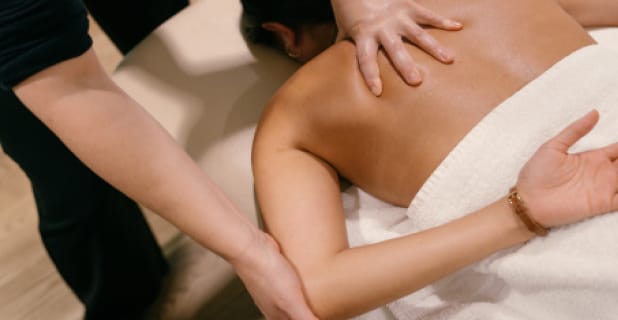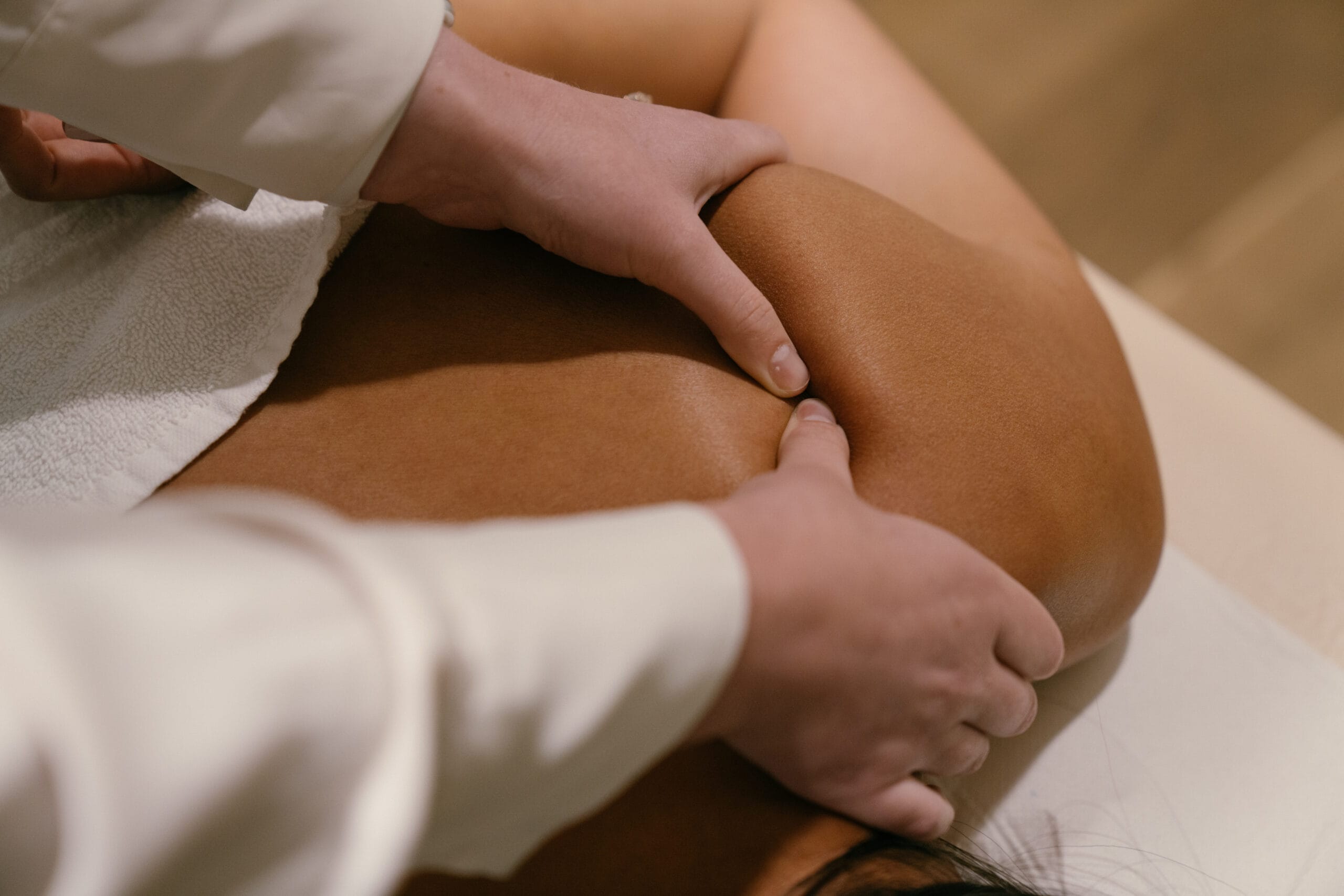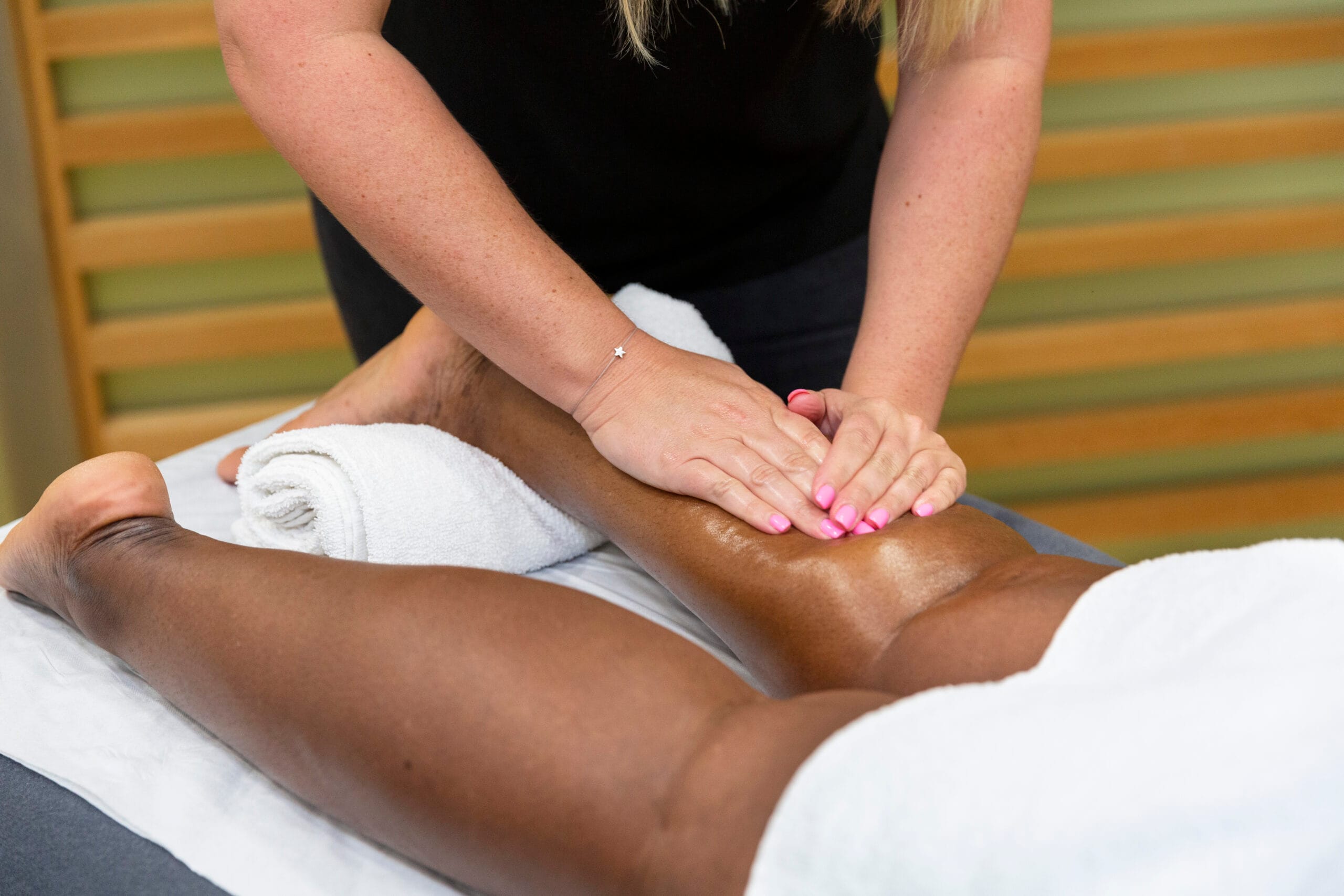Soft Tissue Therapy: Benefiting Everyone, Not Just Athletes

Pure Sports Medicine
- 21 September, 2018
- Soft Tissue Therapy
- 3 min read
Soft Tissue Therapy deals with muscles, ligaments and tendons, and is not only aimed at sports people but anyone who wants to prevent or recover from a soft tissue injury.

Non-sport related injuries to the soft tissues can include an ankle joint sprain (e.g. from a stumble running for a bus), postural and repetitive strain issues (e.g. from sitting at a computer deskbound all day, every day), or muscle strain (e.g. from a weekend spent gardening or DIY).
At the clinic, we see quite a lot of office workerss with neck, shoulder and back issues, often caused not by activity, but rather a lack of activity.
Fascia surrounds everything in the body, on a superficial level (lying under the skin and surrounding the entire body as a single structure), and on a deep level (myofascia surrounding all muscular tissues, and visceral and parietal surrounding organs). Although fascia is seen as one three dimensional continuous network. Fascia surrounding muscles will begin to form adhesive bonds when movement does not occur for some time. Resuming movement will break these tiny bonds, but prolonged and repetitive lack of movement (as happens when sitting at your desk at work) will allow these bonds to strengthen and increase. This in turn causes the fascia to shorten and set into this position, and stretching alone will not reset the fascial tension, but soft tissue therapy can be extremely effective at doing exactly this.
On a muscular level, overuse strain in the muscles in the back of the neck and shoulders may be caused by tightness in the muscles across the chest. A typical office worker’s posture means the chest muscles become short and tight because the shoulders roll forwards and inwards, and the opposing muscles in the back of the neck and shoulders become weakened and lengthened. Soft Tissue Therapy can help to redress this imbalance by releasing the short tight muscles, which then enables the weakened muscles to be effectively strengthened through exercise and prevents eventual uneven wear in the joints. Stress and gravity add another layer to postural and musculoskeletal issues.
Painting or gardening all weekend now and again may require functional movements or engaging muscles not often used by the participant. This can lead to the muscles quickly fatiguing, meaning that the participant will allow postural ideals to fly out the window and find themselves in all kinds of awkward positions for prolonged periods, leading to strains or spasm. Soft Tissue Therapy can help to release tension and, by breaking down any scar tissue that may have started to form around any microtears, allows muscle fibres to slide happily alongside each other, preventing dysfunction in the muscle which can lead to potential longstanding, further reaching issues.
A Soft Tissue Therapist will assess your posture, as well as your movements, and can detect any issues that may develop into an injury scenario in the future, whatever your occupation or hobbies. Neuromuscular techniques used by Soft Tissue Therapists, like Soft Tissue Release, Trigger Point Therapy and Muscle Energy Technique, as well as Myofascial Release and many more, are very effective at treating these issues. Soft tissue therapy can also be used in relation to stress.
It is important for us to see you return to where you were pre-injury and, if possible, to feel even better than before, through education on how to make small changes for big benefits. For example, education on correct stretching, strengthening, and if necessary referrals to other experts within the clinic.
If you want to book an appointment for a sports massage follow the link or give you nearest clinic a call.

Advice
Over the last 20+ years our experts have helped more than 100,000 patients, but we don’t stop there. We also like to share our knowledge and insight to help people lead healthier lives, and here you will find our extensive library of advice on a variety of topics to help you do the same.
OUR ADVICE HUBS See all Advice Hubs

